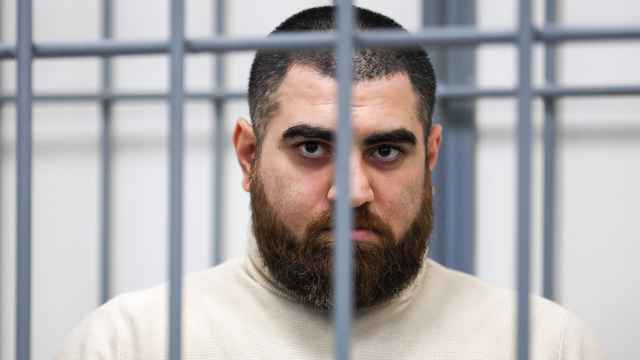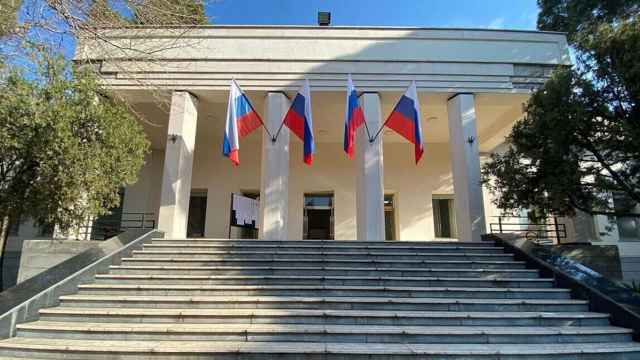A bill enabling state prosecutors to immediately block websites containing illegal information, including summons to unsanctioned protests and "extremist" activity, has passed in a first reading in the State Duma despite criticism from opposition politicians and the human rights community.
Under the draft bill, the prosecutor general and his deputies could, without judicial approval, order sites blocked for inciting readers to riot, commit "extremist" or terrorist activities, kindle conflict between nations or religions, or participate in "mass public events held in violation of the established order."
The law would also apply to information coming from abroad, said the bill's author, Andrei Lugovoi of the pro-Kremlin Liberal Democratic Party.
"A notification can be sent to them in English," the deputy said, Interfax reported.
The amendments would significantly extend current legislation, which authorizes judges to order websites blocked if they are found to contain pirated content, child pornography or information about drugs or suicide.
The proposed legislation follows other laws passed since President Vladimir Putin returned to the Kremlin last year that critics say are aimed at limiting opposition activity and tightening state control of information for the stated goal of increased security.
In June 2012, Putin signed a law toughening punishment for violations of the rules on demonstrations. Earlier this year, it surfaced that the Federal Security Service was seeking to expand its online surveillance capabilities to access all Internet communications without a court order.
The presidential committee on human rights voiced its concerns over the Internet extremism bill Wednesday, declaring an increase in the bans on online content "fraught with serious infringements to the Constitutional rights and freedoms of man and citizen" in a statement on its website.
Moreover, the possible ease in evading these bans will “cultivate disregard for the law” while “creating the illusion of battling extremism instead of actually working to eliminate it,” the committee said.
The proposal was met by similar objections from opposition factions in the Duma prior to Tuesday's vote.
Duma Deputy Dmitry Gudkov, a leader in the protests against Putin's rule last year, said that allowing the prosecutor general to determine what material is "extremist" would contradict the Constitution.
Alexei Mitrofanov, head of the Duma's Information Policy Committee, responded rhetorically: "If 300 people are walking somewhere, are you going to discourse about the Constitution?" he said, Gazeta.ru reported.
When another deputy asked who would define "extremism," Mitrofanov retorted, "while we are discussing what extremism is, pogroms will run rampant."
Mitrofanov, a firm supporter of the bill, said he wants the new regulations to go into force by February 2014.
Gudkov said that imposing such limitations could not prevent "an army of creative, clever Internet-users" from self-organizing, Kommersant reported.
"We will invent many new words or will publish words with mistakes, which will never fall under extremism," Gudkov said. United Russia member Mikhail Markelov accused Gudkov of "giving an account of how to break the law."
Contact the author at [email protected]
A Message from The Moscow Times:
Dear readers,
We are facing unprecedented challenges. Russia's Prosecutor General's Office has designated The Moscow Times as an "undesirable" organization, criminalizing our work and putting our staff at risk of prosecution. This follows our earlier unjust labeling as a "foreign agent."
These actions are direct attempts to silence independent journalism in Russia. The authorities claim our work "discredits the decisions of the Russian leadership." We see things differently: we strive to provide accurate, unbiased reporting on Russia.
We, the journalists of The Moscow Times, refuse to be silenced. But to continue our work, we need your help.
Your support, no matter how small, makes a world of difference. If you can, please support us monthly starting from just $2. It's quick to set up, and every contribution makes a significant impact.
By supporting The Moscow Times, you're defending open, independent journalism in the face of repression. Thank you for standing with us.
Remind me later.






